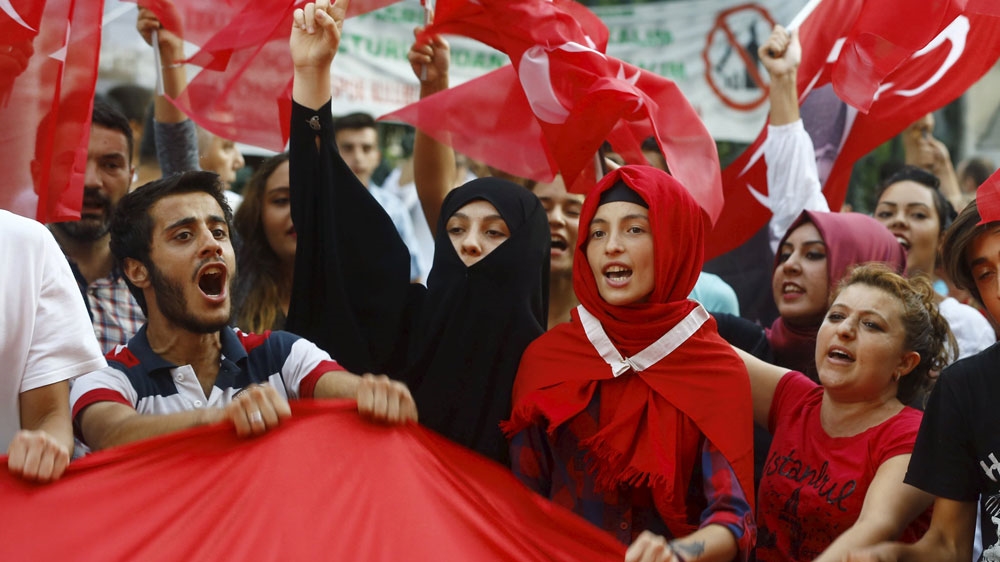[authorbox authorid=”41″ ]
[dropcap size=big]Y[/dropcap]ou no longer have to get along with central governments in the new era of Middle East chaos. You have to leverage influence and create facts on the ground.
This can be seen in many regions — from Libya to Yemen to Iraq — but it has been most glaring in the case of Syria.
The blueprint for this development could be seen as having been laid down by the Israeli-Palestinian conflict that has defined the Middle East for so many decades.
That conflict became a litmus test for the logic of creating facts on the ground. Endless rounds of diplomacy have occurred, including all the major powers of the world, but ultimately, it is Israeli ‘facts on the ground’ that has prevailed.
Similarly, in the Syrian Civil War, and before that in Iraq, we have seen a new regional order emerging whereby the interests of global and regional powers are realised by intervention and the establishment of facts on the ground.
There is much less stress on the sovereignty of the nation state, on the idea of diplomatic channels influencing events in these countries. Instead, these countries have been overrun and the future makeup of the political map dictated.
Contested spheres of influence
Since these processes have been contested among various actors, rather than being the action of one single overwhelmingly powerful outside force, the inevitable consequence has been political fragmentation.
One of these external regional powers is Turkey, and in its actions in Syria and Iraq can be read a foreign policy agenda that relates directly back to early pronouncements from the ruling Justice and Development Party (AKP) on regional re-engagement with the Middle East.
First there was Turkish soft power. It saw huge investment in the Kurdistan region of Iraq, to the extent that Turkey became the single most important economic player in the region, almost eclipsing the Baghdad central government.
This coincided with memoranda of understanding with Syria, Lebanon, Iraq and Iran, plus the push of Turkish culture south of the border like never before. The phenomenon of the exported Turkish soap opera is a case study in itself.
But where there was soft power, hard power has soon arrived as well. As the uprising in Syria turned sour and chaos hardened the divisions in Iraq, Turkey started to actively move beyond its borders militarily.
At first this was played out in the Qandil Mountains of the far north of Iraq, where Turkish air power targeted Kurdistan Workers’ Party (PKK) fighters in their mountain stronghold.
It didn’t actually mean Turkish boots on the ground. But that soon changed. In Iraq, the capture of Mosul by Islamic State gave a pretext to the setting up of Turkish military and intelligence bases across Kurdish-controlled northern Iraq.
Turkish troop deployments to the Bashiqa military base led to condemnation by the Baghdad central government. Turkey responded that then-President of the autonomous Kurdistan Regional Government in Iraq, Massoud Barzani, and his ruling Kurdistan Democratic Party (KDP) had invited them. They did not leave.
Carving up Syria
A similar story of condemnation by a central government has occurred in Syria.
Turkish operations into northern Syria against People’s Protection Units (YPG) — the Kurdish militia for the Democratic Union Party (PYD), seen by Turkey as an affiliate of the PKK — have been met with outrage from the regime in Damascus, but have nonetheless turned into permanent missions.
Turkish troops now control a large area of northern Syria from Afrin across to Jarablus and Al-Bab.
With the latest deal with Russia’s President Putin on Syrian de-escalation zones, Turkish troops are also moving into Idlib province in greater numbers to beef up the already established observation posts set up as a deterrent to Syrian regime forces intent on attacking rebel positions.
In the new Middle East order — or rather disorder — Ankara is likely calculating that there will be little onus put on it to withdraw those forces.
Who would enforce the withdrawal? The regimes in Damascus and Baghdad are far too weak to drive them out. Global players have other agendas. Russia seems inclined to keep the regime in Damascus beholden to its forces, while the US shows little appetite for confrontation in Syria.
It means that in the new order, Turkey finds itself doing business with Russia, Iran and the US on the question of who controls where in both Syria and Iraq. The sovereign governments of these states have in effect become bystanders.
This new reality plays into the wider historical framework of Turkey’s Misak-ı Millî (National Pact), a document of 1920 which, in such charged nationalist times, can have a highly emotive impact domestically within Turkey.
This document saw majority Turkish areas as an integral part of a future Turkish state. The differentiation of the time was between Arab-majority and Turkish-majority regions — Kurds were viewed by nationalists as essentially Turkish.
Such an assertion placed the Kurdish regions of today’s northern Iraq and northern areas of Syria within a Turkish future state.
Turkey’s President Erdogan has trodden this ground with his voter base in alluding to the Misak-ı Millî in his speeches, as well as the cornerstone 1923 Treaty of Lausanne that set the modern borders of the republic. It is an explicit questioning of the status quo established in the post-World War One era.
Given that a contentious loose thread of the Lausanne treaty was the issue of the Mosul vilayet (comprising modern-day Mosul, Iraqi Kurdistan and Kirkuk), and that it was eventually awarded to British-controlled Iraq by the League of Nations in dubious circumstances, it is highly conceivable that Ankara feels no moral sense of attachment to the southern frontier of Turkey in and of itself.
The current chaotic circumstances in the region have presented an opportunity to develop a Turkish sphere of influence, just as global powers have been doing in the region for well over a century. As such, Ankara no doubt views this as a long overdue opportunity to re-balance relations. The chance of Turkish forces withdrawing behind their borders in the near term seems highly unlikely.
In 2013, I wrote an article about the potential for Turkey to carve out a sphere of influence in Kurdish regions of the Middle East, but stressed how “the most effective spheres of influence are always those built on attraction rather than coercion.” Such an assessment is even more telling today.
The success of such a sphere of influence in the present circumstances will have much to do with Ankara’s ability to resolve or otherwise defuse its own Kurdish conflicts.
- The Misak-ı Millî and the expanding Turkish sphere of influence in the Middle East - 09/11/2018
- Why Erdogan Keeps Winning - 28/07/2018
- The Conservative Equation in Turkey - 21/05/2018


